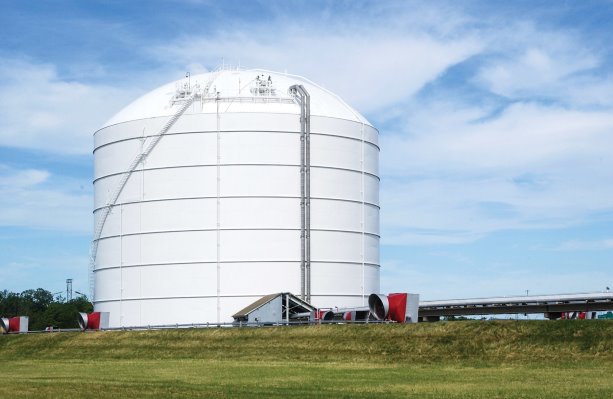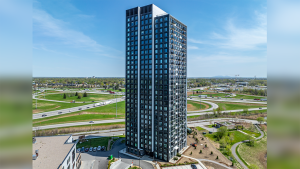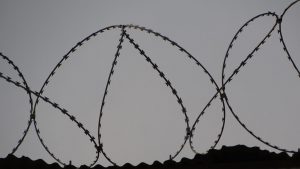MONTREAL — Gaz Metro and Investissement Quebec have announced the completion of a $120-million expansion of the Gaz Metro GNL liquefaction plant in Montreal.
The project began in September 2014 and involved equipping the plant with new loading facilities and a new liquefaction train that would enable the Gaz Metro subsidiary to triple its total annual LNG (liquefied natural gas) production and deliveries. The Gaz Metro liquefaction plant, the only one of its kind in Eastern Canada, now has a total annual production capacity of over nine-billion cubic feet of LNG, explained an April 24 media statement.
The contractor for the project is Linde. A spokesperson for Gaz Metro explained the project’s overall budget was $120 million but that with some civil works still underway, the final cost has yet to be determined.
An overview of the project explained that natural gas changes from a gas to a liquid when cooled to -160 degrees C. In liquid form, it takes up 600 times less space than in its gaseous state. In the same space, it is therefore possible to store 600 times more energy with LNG than with natural gas in a gaseous state, an advantage in terms of transportation and storage.
LNG comes from Gaz Metro’s liquefaction plant in the East of Montreal, in operation for 45 years. Once liquefied, natural gas is stored in the plant’s cryogenic tanks. The plant has two loading docks for filling tanker trucks, which supply refuelling stations or service customers directly. LNG can then be distributed to customers within a radius of over 1,000 kilometres from the LSR plant.
"We are now in a position to maximize the potential of LNG and are more capable than ever of meeting the energy needs of mines and industries far from the gas network as well as those in the heavy road and maritime transportation sector," explained Sophie Brochu, president and CEO of Gaz Metro, in a statement.
"By replacing higher-emission forms of energy such as fuel oil, liquefied natural gas reduces greenhouse gas emissions by up to 32 per cent, as well as considerably reducing the emission of other atmospheric pollutants. It also strengthens our clients’ competitive position."
Gaz Metro is the largest natural gas distribution company in Quebec, with a network of over 10,000 kilometres of underground pipelines that serves more than 300 municipalities and more than 205,000 customers. Gaz Metro is also active in Vermont, where it has more than 315,000 customers.











Recent Comments
comments for this post are closed